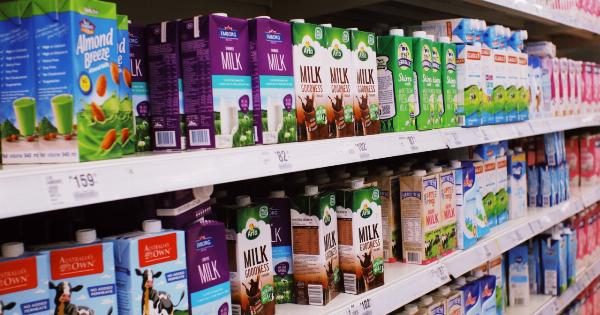Organic food has been increasing in popularity over the last few years. With increasing interest in eating natural and healthy food, organic milk and meat may seem like a good choice for many people.
But is it worth the extra cost? In this article, we dive into what organic food means and the benefits and drawbacks of choosing organic milk and meat. We also ask industry experts to weigh in on whether you should buy organic milk and meat or not.
What Does Organic Mean?
Organic food is produced without using synthetic pesticides or fertilizers, genetically modified organisms (GMOs), and irradiation. Additionally, organic livestock is raised without antibiotics or growth hormones.
Instead, organic farmers use natural methods to grow crops and raise animals, such as crop rotation, compost, and natural pest control.
Benefits of Organic Milk and Meat
Organic milk and meat offer several benefits compared to conventionally-raised products. One of the main benefits is that they are free from antibiotics and hormones.
Although the use of antibiotics in livestock may prevent or treat disease, overuse can lead to antibiotic resistance, making it harder for humans to fight off infections. Similarly, growth hormones can increase the size of livestock, but they may also lead to health problems in both animals and humans.
Organic milk and meat may also contain higher levels of certain nutrients, such as omega-3 fatty acids and antioxidants.
Some studies suggest that organic milk may have a higher level of omega-3 fatty acids than conventional milk, which is beneficial for heart health.
Additionally, organic livestock is raised in humane conditions, with access to outdoor areas and a natural diet. This can lead to better animal welfare and higher quality meat.
Organic farming practices, such as crop rotation and using compost instead of synthetic fertilizers, can improve soil health and prevent soil erosion.
Drawbacks of Organic Milk and Meat
The main drawback of organic milk and meat is the higher cost. Compared to conventionally-raised products, organic products can cost 20-100% more. This can make it difficult for some people to afford organic options.
Additionally, organic farming methods may result in lower yields and less efficient farming practices. This can lead to a higher carbon footprint and potentially less food available to feed the growing population.
There is also limited research on the long-term health benefits of consuming organic food. Although some studies suggest that organic food may have higher nutrient levels, the evidence is not consistent.
More research is needed to determine if the benefits of organic food outweigh the higher cost.
Expert Opinions on Organic Milk and Meat
With differing opinions on the benefits and drawbacks of organic milk and meat, we asked industry experts for their thoughts. Here’s what they had to say:.
Dr. Andrew Weil
“I recommend organic milk and meat whenever possible. These products are better for the environment, animal welfare, and may have higher nutrient levels.
The higher cost may be a barrier, but it’s worth it for the health and environmental benefits.”.
Dr. David M. Klurfeld
“There is little scientific evidence to suggest that organic milk and meat are healthier than conventional products.
Although the use of antibiotics and hormones in conventional livestock should be monitored, there is no convincing evidence that organic food is safer or more nutritious.”.
Dr. Howard W. Rosenberg
“Organic meat and milk offer benefits to animal welfare and the environment, but there is limited evidence to suggest that they are more nutritious or safer than conventional products.
The higher cost may be a deterrent for some consumers, but it may be worth the investment for those who place a high value on organic farming practices.”.
Conclusion
When it comes to deciding whether to buy organic milk and meat, there are several factors to consider. Organic farming practices can lead to higher animal welfare, better soil health, and potentially higher levels of certain nutrients.
However, the higher cost and potential for lower yields may make organic products difficult for some people to afford. Additionally, there is limited evidence to suggest that organic food is safer or more nutritious than conventional products.
As with any food choice, it’s important to weigh the pros and cons and make the decision that is right for you and your family. Consider your budget, values, and health needs when deciding whether to buy organic milk and meat or not.






























